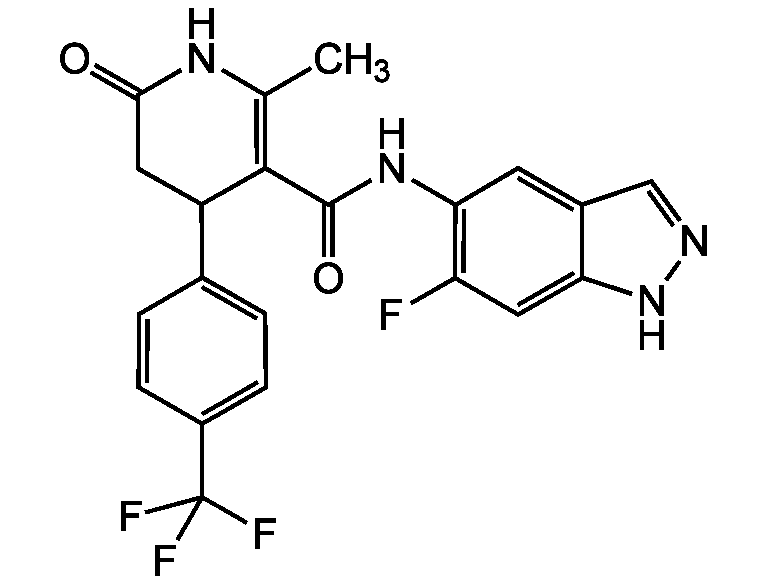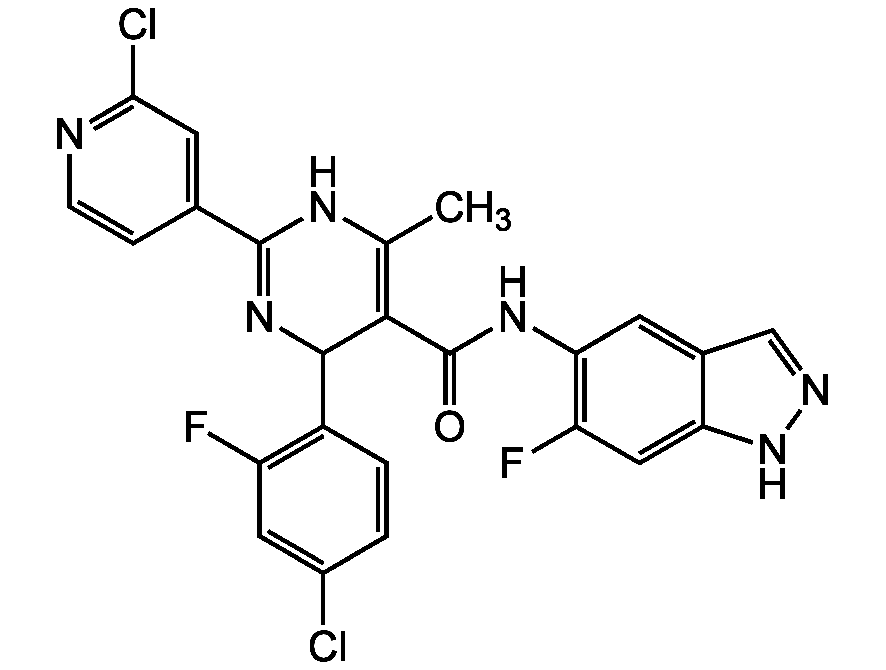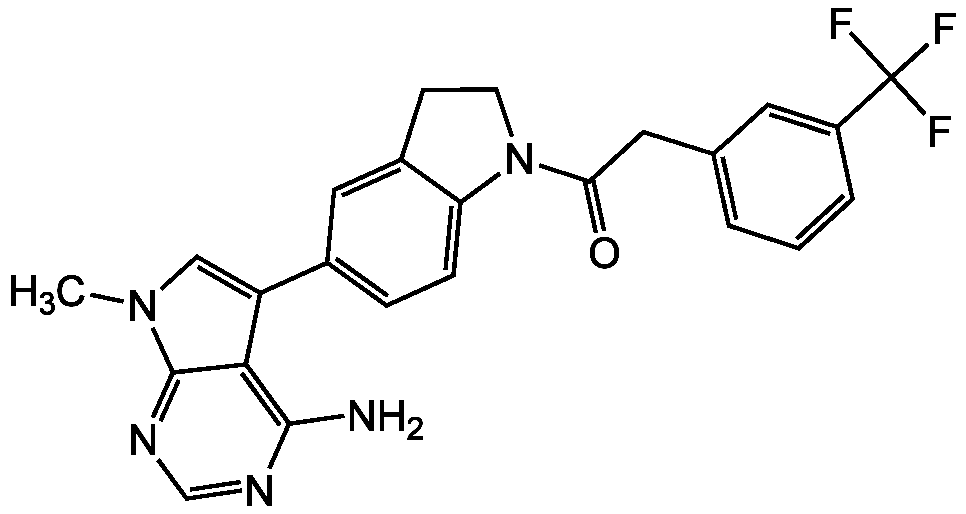
Chemical Structure
GSK2837808A [1445879-21-9]
AG-CR1-3685
CAS Number1445879-21-9
Product group Chemicals
Estimated Purity>98%
Molecular Weight649.6
Overview
- SupplierAdipoGen Life Sciences
- Product NameGSK2837808A [1445879-21-9]
- Delivery Days Customer10
- CAS Number1445879-21-9
- CertificationResearch Use Only
- Estimated Purity>98%
- Hazard InformationWarning
- Molecular FormulaC31H25F2N5O7S
- Molecular Weight649.6
- Scientific DescriptionChemical. CAS: 1445879-21-9. Formula: C31H25F2N5O7S. MW: 649.6. . Potent and selective cell-permeable inhibitor of lactate dehydrogenase A (LDHA) (IC50 values are 2.6 and 43 nM for LDHA and LDHB, respectively). Decreases glycolysis. Useful agent for immunometabolism research. Exhibits antitumoral activity. Inhibits lactate production in selected cancer cell lines. Reduces glucose uptake and enhances mitochondrial oxygen consumption in Snu398 hepatocellular carcinoma cells. Inhibits proliferation and induces apoptosis in Snu398 cells. Inhibits transcription of histone 2B (H2B) gene in HCT116 and NCM460 cells. Lactate dehydrogenase A (LDHA) is an important enzyme involved in fermentative glycolysis, important in tumor initiation and metabolism. Cancer cells rely on increased glycolysis resulting in increased lactate production in addition to aerobic respiration in the mitochondria, even under normal oxygen concentrations (a process known as the Warburg effect). This renders LDHA a promising molecular target for the treatment of various cancers. - Potent and selective cell permeable inhibitor of lactate dehydrogenase A (LDHA) (IC50 values are 2.6 and 43 nM for LDHA and LDHB, respectively). Decreases glycolysis. Useful agent for immunometabolism research. Exhibits antitumoral activity. Inhibits lactate production in selected cancer cell lines. Reduces glucose uptake and enhances mitochondrial oxygen consumption in Snu398 hepatocellular carcinoma cells. Inhibits proliferation and induces apoptosis in Snu398 cells. Inhibits transcription of histone 2B (H2B) gene in HCT116 and NCM460 cells. Lactate dehydrogenase A (LDHA) is an important enzyme involved in fermentative glycolysis, important in tumor initiation and metabolism. Cancer cells rely on increased glycolysis resulting in increased lactate production in addition to aerobic respiration in the mitochondria, even under normal oxygen concentrations (a process known as the Warburg effect). This renders LDHA a promising molecular target for the treatment of various cancers.
- SMILESFC1=CC(F)=CC(OC2=CC(C(O)=O)=CC(NC3=C(C=NC4=C3C=CC(C5=C(N=C(N=C5)OC)OC)=C4)S(NC6CC6)(=O)=O)=C2)=C1
- Storage Instruction-20°C,2°C to 8°C
- UNSPSC12352200






![GSK2837808A [1445879-21-9]](https://www.targetmol.com/group3/M00/37/CF/CgoaEGayUhSERZSzAAAAACvcgdg341.png)